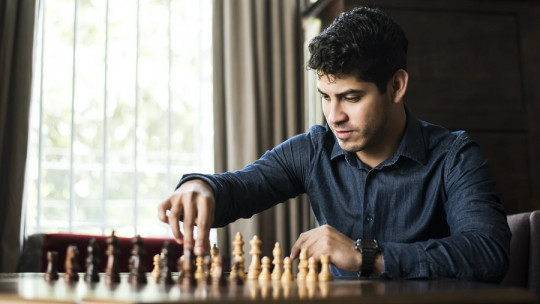
Our nervous system needs to rest. We live in a context of uncertainty and overdemand. In pandemic, our routine has been altered; the boundaries between work/study and leisure have been blurred
For this reason, our brain has been constantly alert for months. It is urgent that we reprioritize play in our lives.
It is vital that we can organize priorities and recognize that life cannot be just obligations and worries Nor is it about doing and thinking with a productive (economic) purpose. Leisure is vital for our brain and body to stay healthy.
The importance of play in the context of the pandemic
Playing is creating, expressing, sharing, imagining, learning. We know that play is important for the development of the baby, the child, the adolescent. But we tend to neglect its importance in youth, maturity and old age.
The baby, the child and the adolescent express themselves mainly through play The baby plays first through his mouth, and then incorporates the other senses, becoming increasingly independent. Little by little, we are learning cognitive skills, but also social skills. This is how we learn to tolerate waiting, to get frustrated, to share, to manage anger, to win and lose.
As we grow, the game becomes increasingly social and regulated, such as board games and sports. However, the game does not lose its sense of creation and communication with others.
Today’s society is tending to limit gaming to a screen. Even more so in a pandemic. It is increasingly worrying to see how families associate gaming with cell phones, consoles and tablets. Technology is part of modern life, however, it cannot replace traditional gaming.
For harmonious development, the child needs to get dirty, run, climb, ride a bike play ball, climb in a hammock, play house, draw, tell made-up stories, dress up, fly a kite, stargaze, explore bugs and plants, read stories with mom/dad, play tag, create clay pots, playing with pets, painting, playing board games, playing an instrument, dancing and singing.
The adolescent, on the other hand, enjoys some of the games from the previous stages, privileging activities with groups of peers To do this, incorporate regular sports or some artistic activity, such as dance and music. He also enjoys solitary hobbies (self-knowledge), such as writing.
Leisure in adulthood
When we become adults is when Obligations and worries take up almost all of our time, and we forget to dedicate enough time to enjoyment and leisure That is why we have to make an effort to incorporate play into the weekly agenda. At this vital stage, hobbies that do not involve a screen are essential. Precisely, when it is essential to keep body and mind active, both in the company of others and alone.
Although the previous forms of play are options for adults, a preference appears for the recreational practice of other modalities such as: practicing regular physical activity, participating in a literary workshop, sharing time outdoors with children or grandchildren, spending time painting mandalas, doing crossword puzzles and board games, reading stories to others, hiking, get involved in solidarity activities, do manual projects such as: fixing things, participating in a choir, gardening, knitting, etc.
By playing we connect with others We allow ourselves to “waste time” and become children again. We push away worries, express ourselves, create, laugh and live in the present. What are you waiting for? I suggest you stop reading this and “go out and play.”








